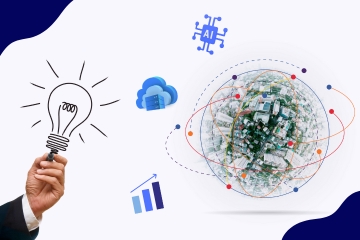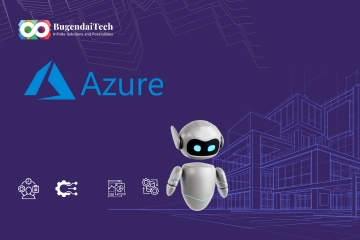In the modern business landscape, mobile applications have become essential engagement, productivity, and revenue generation tools. Integrating Artificial Intelligence (AI) and Machine Learning (ML) into these applications is revolutionizing how businesses operate, offering unprecedented opportunities for innovation and efficiency. This blog explores how AI in mobile apps and ML in mobile apps transform mobile app development for business applications and the benefits they bring.
How is AI and ML transforming mobile apps?
The simulation of human intelligence processes by robots is known as artificial intelligence. At the same time, Algorithm creation for machine learning, a branch of artificial intelligence, enables computers to learn from and make judgments based on data. Integrating these technologies into mobile app development is a game-changer, enabling apps to provide smarter, more personalized, and efficient user experiences.
Personalization and User Experience
One of the most significant impacts of AI and ML in mobile apps is the ability to offer personalized experiences. AI-driven apps can tailor content, recommendations, and functionalities to individual users by analyzing user behavior, preferences, and interaction patterns. For instance, streaming services like Netflix use ML algorithms to suggest movies and shows based on viewing history, ensuring users stay engaged and satisfied.
In e-commerce, AI-powered mobile apps can analyze past purchases, browsing habits, and social media activity to provide personalized shopping experiences. This level of mobile app personalization enhances user satisfaction and drives higher conversion rates and customer loyalty.
Enhanced Security
Security is a major concern for any business application. AI and ML contribute significantly to enhancing the security of mobile apps. AI algorithms can detect unusual patterns and behaviors that may indicate fraudulent activities, enabling real-time threat detection and prevention. For example, banking apps utilize AI to monitor transactions and flag suspicious activities, protecting user data and financial information.
Biometric authentication, such as facial recognition and fingerprint scanning, is another area where AI is making strides. These technologies provide a layer of mobile app security, ensuring only authorized users can access sensitive information.
Improved Customer Support
Customer support with AI is a critical component of business operations. AI-powered chatbots and virtual assistants are revolutionizing this domain. Integrated into mobile apps, these AI tools provide instant, 24/7 customer service, handling various queries and issues without human intervention. They leverage natural language processing (NLP) to effectively understand and respond to user inquiries.
For instance, AI-powered chatbots in retail apps can assist customers with order tracking, product information, and return processing. In the healthcare sector, virtual assistants can provide patients with appointment scheduling, medication reminders, and preliminary health advice.
Predictive Analytics and Business Intelligence
AI and ML enable businesses to harness the power of predictive analytics in mobile apps, transforming raw data into actionable insights. Mobile apps integrated with ML algorithms can analyze historical data to forecast trends, customer behavior, and market movements. This capability is invaluable for businesses looking to make data-driven decisions.
For example, in the logistics industry, AI-powered apps can predict shipment delays based on weather patterns, traffic conditions, and historical data. This allows businesses to optimize routes, manage inventories more efficiently, and improve overall operational efficiency.
Automation and Efficiency
Automation is a key benefit of mobile app development with AI and ML. Routine tasks that traditionally require human intervention can now be automated, freeing resources for more strategic activities. From automated email responses to intelligent inventory management, AI-powered mobile apps streamline operations and boost productivity.
In customer relationship management (CRM), AI-driven mobile apps can automate lead scoring, follow-up emails, and customer segmentation, ensuring that sales teams can focus on high-priority tasks and close deals more effectively.
What are the challenges and considerations?
While integrating AI and ML in mobile app development offers numerous benefits, it also comes with challenges. Ensuring data privacy and compliance with regulations such as GDPR is crucial, as AI systems frequently need to access vast amounts of personal data. Additionally, developing and maintaining AI-driven apps require specialized skills and resources, which may pose a barrier for some businesses.
Conclusion
Integrating Artificial Intelligence and Machine Learning into mobile app development transforms business applications across industries. From mobile app personalization and enhanced security to improved customer support and mobile app analytics, AI and ML are driving innovation and efficiency.
As companies keep utilizing these technologies, the potential for mobile apps to deliver even greater value and competitive advantage will only grow. By navigating the challenges and leveraging the benefits, businesses can harness the power of AI and ML to thrive in the digital age.






Comments